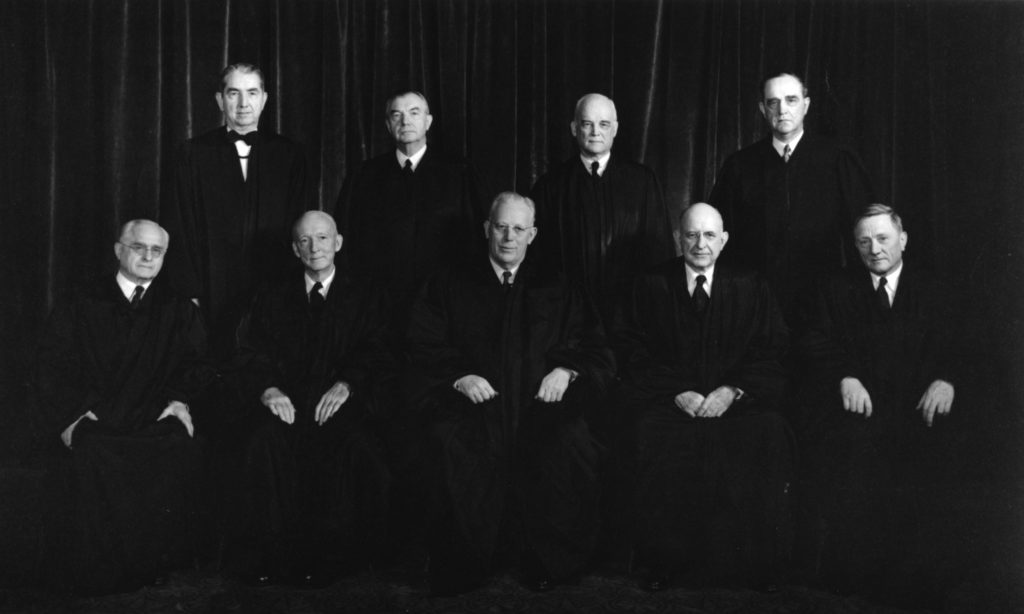



Brown v. Board of Education concerned whether state school segregation laws violated the Fourteenth Amendment. The Fourteenth Amendment, however, is understood only to restrict the state’s police powers — not the federal government’s powers. The Fifth Amendment’s Due Process Clause, however, does limit federal power. It provides that “no person shall be . . . deprived of life, liberty, or property, without due process of law.” When Brown was decided, federal law segregated public schools in the District of Columbia. In Bolling v. Sharpe, decided the same day as Brown, the Court found that federal school segregation law violated the Fifth Amendment’s Due Process Clause.
Chief Justice Warren also wrote the unanimous opinion in Bolling. He admitted that “[t]he Fifth Amendment, which is applicable in the District of Columbia, does not contain an equal protection clause as does the Fourteenth Amendment which applies only to the states.” Yet he found “that racial segregation in the public schools of the District of Columbia is a denial of the due process of law guaranteed by the Fifth Amendment to the Constitution.” Why?